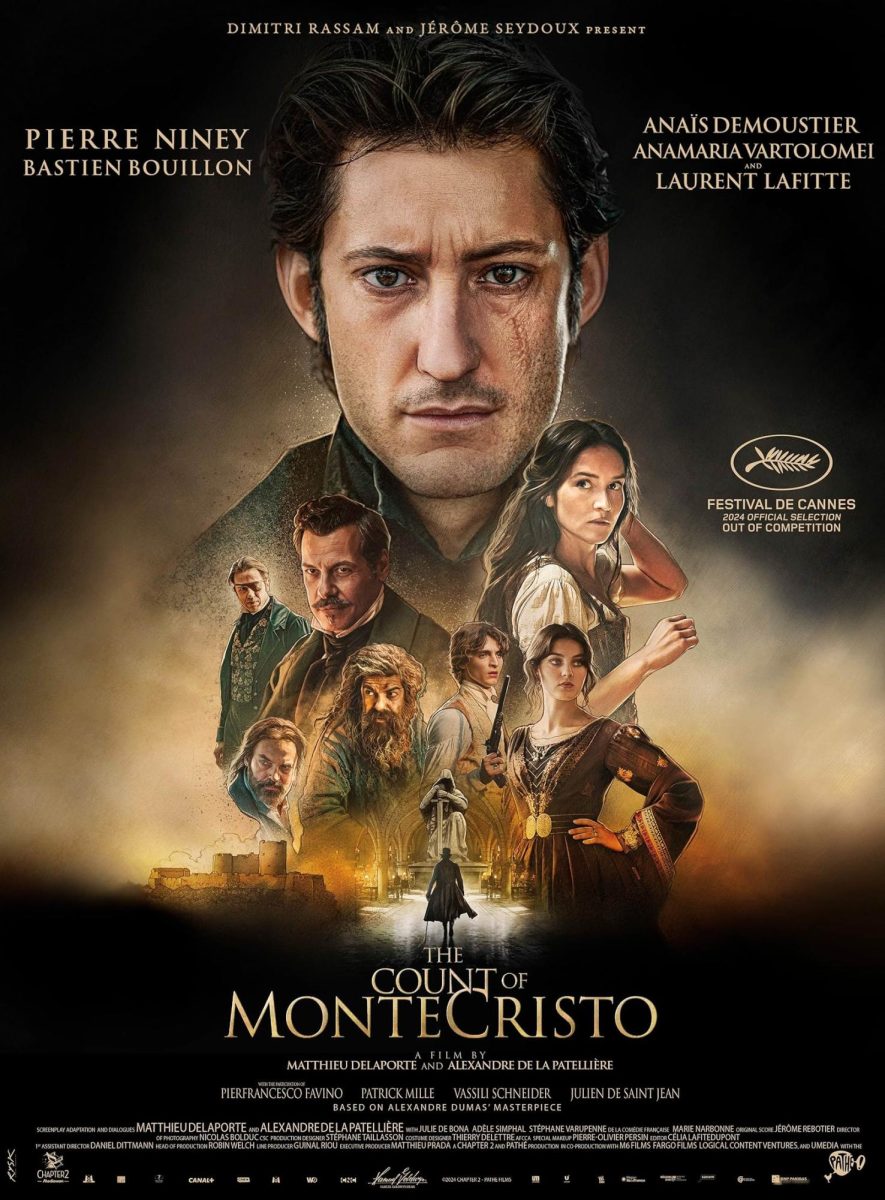Over the past month, I’ve had the pleasure of seeing some great American films that came out in 2024, such as “A Complete Unknown,” “A Real Pain,” and “Nosferatu.” In my mind, the lesser known “The Count of Monte Cristo” triumphs over all of them. Maybe literally, too: It’s possible Edmond Dantes would find a way to beat a vampire like Count Orlock in a battle.
A story of betrayal, adventure, and revenge, the film deals with the wrongful arrest of a French sailor in 1815. The man, Edmond Dantes, is sent to prison but breaks out after 14 years. While there, he learns from another prisoner of the existence of a treasure on the island of Monte Cristo. When he escapes, he finds the riches and vows to exact retribution against those that conspired against him.
I must admit I am biased in the sense that prior to my viewing, I had only seen the 2002 American version of the story, and had never read the book. But, it’s hard to believe that any other “Count of Monte Cristo” film is better than the one that came out this past year.
The film showcases its action scenes in a spectacular manner but doesn’t shy away from drama. Compared to the 2002 installment, which is 2 hours 11 minutes, the new movie is much longer at 2 hours and 58 minutes. The moments of dialogue add a natural humanity to the movie without forcing sentimentality down viewers’ throats. Many films, especially of the action and adventure genre, can be overly flamboyant in their displays of events. An example would be the first part of the recent “Mission Impossible” movie. While highly exciting, it suffered from some poor dialogue, and when coupled with so much action, it’s very hard to recognize any real character development. “The Count of Monte Cristo” relies less on action and takes a more down-to-earth approach with its characters, expressing their relationships to each other and how those relationships evolve as the film progresses.
What the film provides is a sincerity in its dialogue that is very hard to find for an American viewer who is watching a subtitled translation of a foreign-language film. The language we speak influences the way we think, and not all translations of dialogue on the screen correctly convey the emotion a particular character is expressing. This same sincerity is also prevalent in Pierre Niney’s performance as Edmond Dantes. His desperate, confused cries upon being arrested suggest something very real: a man who has had everything undeservedly ripped away from him. When he escapes prison, he is a wiser and stronger man with clear motivations. But, he is not a “new” man upon leaving his confinement. Instead, he is a man who has acquired the proper physical, mental, and life skills to accomplish his goal.
The audience is always with Dantes. Despite his changes in personality through the events that befall him, the connection between the viewer and the protagonist is made possible by his lust for revenge, which never changes. He is always the seaman who once had something, a life, and that something is taken away. The audience are witnesses to his journey. They are a part of his happiness, sadness, frustrations, setbacks, highs, lows, and victories. It’s what an adventure movie should be. Not just the exciting events that impact a character’s journey, but the inner tribulations of a character: his decisions, and the resultant behavior of his experiences.
While the film’s great design and Nicolas Bolduc’s cinematography are out of this world, especially through the the scenes in the mediterranean sea in the opening scene as well as during Dantes’ escape from prison, the movie’s main brilliance is the authenticity it brings to its genre. Most people don’t imagine themselves making a daring escape from an island prison and then traveling to another faraway island to find treasure that will make them rich, all while making a bid to enact revenge on those that put them behind bars in the first place. Especially in this day and age, where many movies like “Mission Impossible” are all action and no drama. But in a realistic world, not every adventure is going to be constant thrill and risk. ”The Count of Monte Cristo” has th, but it is still a portrayal of life and real people, providing the necessary drama to create a realistic portrayal of a man’s quest for vengeance.







































